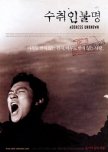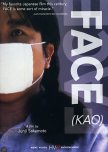

For the trauma after war.
After surviving Japanese colonization, Korea became the first war zone of the Cold War. The legacy of war remains today in this divided country. Three forlorn teenagers, Chank-guk, Jihum and Eunok are figures in the landscape of this story, which highlights the global implications of a very Korean reality. None of them is able to escape the withering pull of tragedy.
After surviving Japanese colonization, Korea became the first war zone of the Cold War. The legacy of war remains today in this divided country. Three forlorn teenagers, Chank-guk, Jihum and Eunok are figures in the landscape of this story, which highlights the global implications of a very Korean reality. None of them is able to escape the withering pull of tragedy.


Some critics consider "Black Sun" is a sequel of "The Warped Ones". Actor Chico Lourant plays the same character in both films called Gill.


Two friends who witnessed an organized crime murder are threatened by the local mob into keeping quiet.


After a badly done assignment, a hitman finds himself in conflict with his organisation, and one mysterious and dangerous fellow-hitman in particular.
A businessman kills his adulterous wife and is sent to prison. After the release, he opens a barbershop and meets new people, talking almost to no one except an eel he befriended while in prison.


Both are about trials in the courtroom to women accused of murdering their infants without considering the individual, social an other situations mothers are going through. Both narrate female suffering in an oppressive society
In "Women's Victory" Kinuyo Tanaka is a female lawyer. When Mitsuko Miura, an old school friend, is being tried for murder of her infant, she serves as her defending attorney. The prosecutor is her brother-in-law, Kappei Matsumoto, who put her fiancee in prison under the militarist government, and paid for her education. He is a cold and severe man, who espouses law on its own terms. Under the new swelling of democracy and liberalism, there are calls for his dismissal. If he can ride out the current moment, he hopes to be appointed a chief prosecutor. He asks, no, demands, that she throw the case. He claims that the law is an absolute in itself; yet he uses it and all means available to further his own interests. His arguments are straw man arguments, devoid of compassion or any humanity. Even though we do not hear the actual verdict, our sympathies are all with Miss Tanaka, and her victories outside the courtroom presage her inevitable victory within the well.
Despite the melodramatic underpinning of the case at hand, the real questions are the ones defining the direction of the post-war world in pitting the feudal values of “duty” and “womanliness” against a modernising liberality that prizes freedom and equality above hierarchy and obligation.
In "Women's Victory" Kinuyo Tanaka is a female lawyer. When Mitsuko Miura, an old school friend, is being tried for murder of her infant, she serves as her defending attorney. The prosecutor is her brother-in-law, Kappei Matsumoto, who put her fiancee in prison under the militarist government, and paid for her education. He is a cold and severe man, who espouses law on its own terms. Under the new swelling of democracy and liberalism, there are calls for his dismissal. If he can ride out the current moment, he hopes to be appointed a chief prosecutor. He asks, no, demands, that she throw the case. He claims that the law is an absolute in itself; yet he uses it and all means available to further his own interests. His arguments are straw man arguments, devoid of compassion or any humanity. Even though we do not hear the actual verdict, our sympathies are all with Miss Tanaka, and her victories outside the courtroom presage her inevitable victory within the well.
Despite the melodramatic underpinning of the case at hand, the real questions are the ones defining the direction of the post-war world in pitting the feudal values of “duty” and “womanliness” against a modernising liberality that prizes freedom and equality above hierarchy and obligation.

























